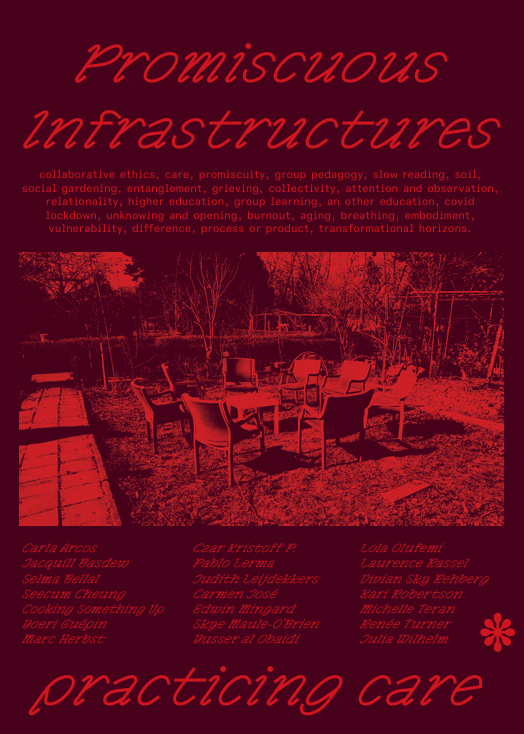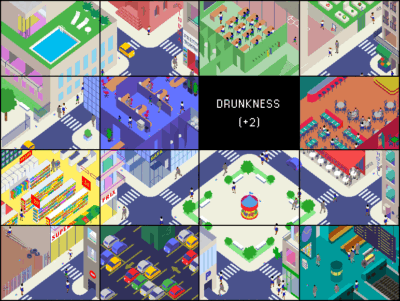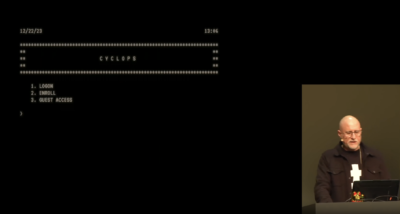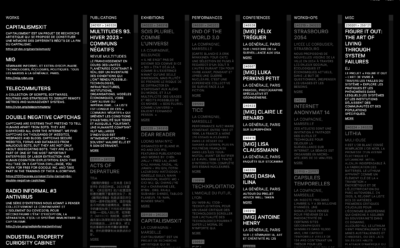“How do we care for each other in our living, learning and working lives? The manual Promiscuous Infrastructures Practicing Care calls for an ethics of care and attentiveness to one another, re-imagines the making and the use of infrastructures, and situates care within a genealogy of artistic and social practice.
Promiscuous Infrastructures brings together more than twenty contributors—art and social practitioners, researchers, and educators—including the twelve core members of the Promiscuous Care Study Group, who have been researching and writing about caring infrastructures and promiscuous care for several years. This project takes seriously the urgent need to imagine diverse infrastructures of care at every scale of planetary existence. The resulting interdisciplinary publication comprises essays, visual schematics and scores, personal letters, recipes, and conversations, which emerge from the work of the study group, situated around the Willem de Kooning Academy in Rotterdam.

In society at large, the adjective “promiscuous” is commonly understood as a derogatory term, but it originally referred to people or things that “mingled confusedly or indiscriminately.”
The promiscuity the title explores is defined by a clear and collective refusal of efficiency, and favors generosity, care, love, and attention. Together, the group and their interlocutors situate their own collective care practice within a genealogy of artistic and general social practice. Adopting the UK-based Care Collective’s understanding of promiscuous, which aims toward multiplying and experimenting with caring practices beyond the shriveled forms that prevail today, Promiscuous Infrastructures addresses the following themes: institutional change, communal responsibility and accountability practices, mental health and collective care, hospitality and hosting, soil, counter-histories, intergenerational learning, joy and collective grief, and the poetics of imagining otherwise. These themes nurture a practice of multiplying and experimenting in diverse and expansive ways.

In this publication being promiscuous means taking agency within and beyond the shared context of structurally dispassionate cultural and educational institutions that require innovation, expediency, and measurable results above all.”




